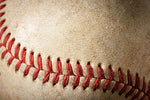
When Was Baseball Invented?
, by Brad Purcell, 9 min reading time

, by Brad Purcell, 9 min reading time
Baseball is one of the most beloved sports in the United States and has been played for over two centuries. But when was baseball invented and how did its origins come about? It's a question that has captivated many people as they've tried to uncover the mysterious genesis of this iconic game. This article explores the history behind baseball's invention, from its humble beginnings to its modern-day popularity. So if you're curious about baseball history, keep reading!
Baseball, as a sport, has roots that can be traced back to various bat-and-ball games played in different cultures throughout history. However, the modern game of baseball, as we know it today, originated in the United States in the mid-19th century. The specific origins of baseball are somewhat debated, as it evolved gradually from earlier bat-and-ball games.
The "Knickerbocker Rules," developed by the Knickerbocker Baseball Club in New York City in 1845, marked an important milestone in the formalization of the game. These rules helped establish a standardized set of regulations for baseball and contributed to its popularity and spread.
The Legend of Abner Doubleday is a popular but historically inaccurate story that attributes the invention of baseball to a Civil War general named Abner Doubleday. According to the legend, Doubleday supposedly devised the game of baseball in Cooperstown, New York, in 1839.
However, there is no substantial evidence to support this claim. The Doubleday myth was perpetuated by a commission appointed by Major League Baseball in 1905, known as the Mills Commission. The commission aimed to find the true origins of baseball and promoted the Doubleday story as a way to establish a patriotic and American heritage for the sport.
In reality, baseball's development was a gradual process, evolving from earlier bat-and-ball games played in different cultures and regions. The game's rules and structures evolved over time, and there were many contributors to its development. While Doubleday was a prominent figure in American history, there is no evidence connecting him to the creation of baseball.
The true origins of baseball are a subject of debate and speculation among historians and sports enthusiasts. While there is no definitive answer, the modern game of baseball is believed to have evolved from earlier bat-and-ball games played in England. Here's a brief overview of the historical development of baseball:
While the exact origins of baseball remain unclear, it is evident that the sport evolved from earlier bat-and-ball games and gradually developed into the organized game we recognize today. The contributions of numerous individuals and the collective efforts of early baseball clubs played a significant role in shaping the game's rules and structure.
The National Association of Base Ball Players (NABBP) was founded in 1857 by sixteen clubs from the New York region. This was the first group to regulate the activity, set standards for nine-man teams, and create a competition. Although they were intended for amateur club baseball teams, it quickly became clear that some competitors were being paid.
The National Association of Professional Base Ball Players and an amateur league were formed when a conflict between professional and amateur baseball players broke out in 1870. This was relatively short-lived as in 1876, William Hulbert's National League was established in its place. Around this time, clubs decided that non-white players would not be allowed to play professional baseball. This restriction remained in place until 1947.
The National League's early years were not particularly successful. It would compete with other leagues, and players were frequently unhappy with their playing privileges. Nevertheless, Ban Johnson took over as the American League's president in 1894, and he embarked on a mission to elevate the league to the position of a major league.
When does the baseball season start?
The first World Series of baseball took place in 1903 and marked a significant milestone in the sport's history. It was a best-of-nine series between the champions of the two major professional baseball leagues at the time: the National League and the newly formed American League. The Pittsburgh Pirates, representing the National League, faced off against the Boston Americans (later renamed the Red Sox), representing the American League.
The series aimed to determine the ultimate champion of professional baseball. The games garnered widespread attention and excitement, drawing large crowds and media coverage. The Boston Americans emerged as the victors, winning the series five games to three. The inaugural World Series laid the foundation for an annual championship tradition that continues to this day, becoming one of the most prestigious and anticipated events in the world of baseball.
Both World War I and World War II had significant impacts on baseball, shaping the sport in various ways. Here are some ways in which the wars influenced baseball:
Overall, the wars influenced baseball by altering player rosters, promoting integration, repurposing stadiums, and providing a sense of morale and diversion. The sport adapted to the challenges and played a role in supporting the war efforts while also serving as a source of solace and entertainment for those affected by the conflicts.
What to wear to a baseball game
If you’re a baseball player looking to elevate your game, Baseball360 sells a wide range of baseball equipment. We stock products such as baseball hats, baseball bats, gloves, protective gear, pants, catcher equipment, and cleats. You can also book a batting cage to test all the new products you have purchased and practice your skills for the upcoming league!


